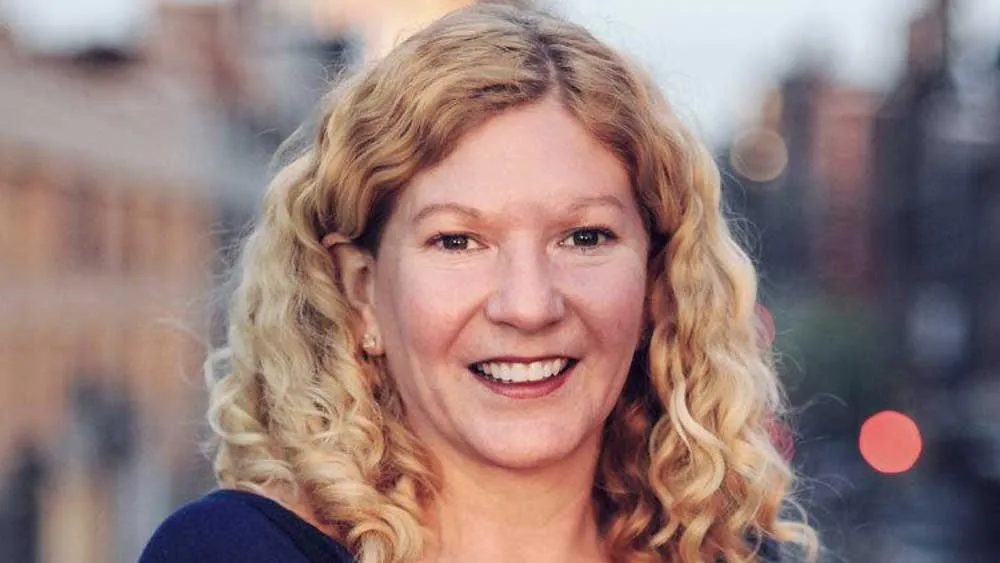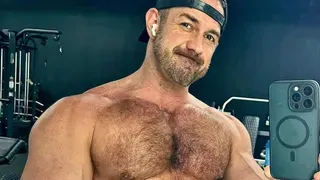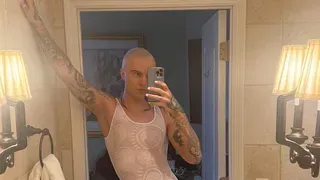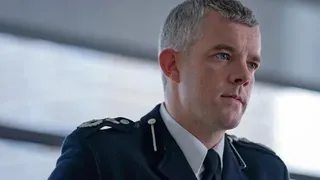November 9, 2011
Inside 'J. Edgar' :: DC politics, power & the closet
Jim Halterman READ TIME: 10 MIN.
One thing you can always count on arriving at the same time as the end-of-year holidays is the Oscar-worthy film crop. For the most part, film studios hold onto their biggest bets for nabbing Academy Award nominations until this time of year so they'll stay fresh in their minds when voting happens in the early part of the new year.
A major entry in the race for the Oscar comes this week with the Clint Eastwood-directed film, "J. Edgar," a bio pic about the man who helped create the Federal Bureau Of Investigation.
He also happened to be a closeted gay man who shared his later years with companion Clyde Tolson, his right hand man at the FBI. As portrayed by Leonardo DiCaprio and Armie Hammer, Hoover and Tolson may not have had the most traditional of relationships but, as the film shows in the actors' distinct performances, there was much love there that the film explores.
A tough one to research
Written by out screenwriter Dustin Lance Black, who knows a thing or two about writing bio-pics from his Academy Award-winning turn as writer of the 2009 movie "Milk," the beginning of this project came with the research on Hoover, and Black is the first to admit that it was anything but easy. "This was a tough one to research," he explained during the film's press junket in Los Angeles last week. "You read any of the biographies on J. Edgar Hoover [and] you find that they contradict each other more than they agree oftentimes. They're often told from a political perspective [and] they feel like they have an agenda oftentimes."
However, once he sifted through the various research, he said that suddenly an image of who Hoover was began to come together. "At a certain point, you've met enough people and you've read enough people's biographies and first-hand accounts and [you are] able to come to conclusions about who the man was." One thing that helped Black stay on track is the one question he made to sure to constantly be asking himself. "For me," he explained, "it was always important to answer the question why. I know that this is someone who attained a lot of power and he maintained that power for longer than he probably should have and I was so curious as to why. Most of my questions were to answer that and to see because I thought that was how we could make this into an emotional story and how we could maybe learn from it both in the good that he did and the bad..."
Unfulfilling personal life
What Black found in his research was a man who may have been seen as a major influence in crime enforcement but had a less-than-fulfilling personal life. Was that just a sign of the times for a man who happened to be attracted to other men? Again, the question why came into play for the writer.
"For me," Black explained, "that why was answered with his inability to love and learning about the atmosphere that he grew up in and that had to do with interviews with a lot of older gentlemen who are still alive, thankfully, who could describe what it was like to grow up in that time - pre-sexual revolution, pre-Stonewall - and the behavior and the rules of what you could say and couldn't say even in private, even with the person you might be falling in love with..."
And why was this closeted man's life worthy of exploring? That was an easy question for Black to answer after all his research. "All of a sudden it really started to match up with Hoover's behavior and I felt that I understood this man. It was a creepy feeling at times because I'd have hard feelings about so much of what he did and I started to empathize with him and I started to feel for him and you start to question that and you start to worry about that. I always stopped myself and said 'Hey, if we ever want to keep this from happening again...we need to understand that why so we can keep it from happening again.'"
Story continues on following page.
Watch the trailer to "J. Edgar":
A fascinating portrait
Obviously, Black was passionate about the subject of Hoover and that passion would grab the attention of Leonardo DiCaprio and Clint Eastwood. "I think the screenplay that Clint and I responded to by Mr. Dustin Lance Black," said DiCaprio at the same press junket, "was a very fascinating portrait of this man."
One of the elements of the script was the group of characters that would end up devoting their lives to their work with the FBI. Of Hoover, Tolson and Hoover's devoted assistant Helen Gandy (played by Naomi Watts), DiCaprio explained that these three people "were the representation of the FBI. That was their church. It's a hard concept for me to wrap my head around to not completely sacrifice any love in their life and never experiencing that on a personal level and all three of these characters lived a life of service to their country. What I was fascinated by was [Black's] take on entering J. Edgar Hoover's career during a time of terrorist invasion by communists, the first Red Scare (1919-1920), that sort of paranoia that was infused in our country and sort of lawlessness of these bank robbers that were going from state to state and becoming free men when they crossed state lines and how J. Edgar Hoover really transformed the police system in America and created this Federal Bureau that to this day is one of the most fear and respected and revered police forces in the entire world."
While DiCaprio may have had a handle on his character thanks to the amount of research Black gathered, his co-star was a little less convinced he could understand his character. "At first," admitted Hammer of figuring out Clyde Tolson, "I didn't understand it. For J. Edgar, the character, there's a lot going on and it's very layered... but with Clyde I thought in order for it to make sense for him to be there and to stick around and to almost take that sort of hot and cold abuse it had to be a love story."
Why did Clyde stick around?
However, just knowing those facts wasn't exactly enough to make the pieces fall into place. "At first when I read [the J. Edgar script I didn't understand the love story. I didn't understand exactly why Clyde stuck around. I understood why Hoover wanted him to around and why it was dangerously titillating to have him around but it didn't make sense to me why Clyde would stick around. I ended up having several great conversations with Fiona Weir, who cast the project, and several friends of mine. The complexities of their relationship were made more and more clear to me and I started becoming more and more obsessed with it."
Besides the time spent on an amazing and controversial figure like J. Edgar Hoover, the cast was also in awe of their 81-year old director. "From an outsider's perspective," said DiCaprio of Clint Eastwood, "it's amazing what he does. If he's not directing a film, he's acting in it or he's composing the music for that film. His commitment to what he does is astounding and it's for all of us to witness, it's inspiring actually."
In fact, one of the biggest scenes in the film involves a fight about their personal relationship that gets physical between Hoover and Tolson in a hotel room but it was the director who took it upon himself to provide a demonstration. "Clint decided to show us what he wanted," Hammer recalled, "and then he and his buddy, Buddy Van Horn [the film's stunt coordinator], who he's known since 'Rawhide' (the 1950s television series in which Eastwood had his first starring role.) ...they just had a fight right in front of us. Clint saunters up and says 'I was just thinking this is a very important scene so maybe in the fight you might want to do something like this...' The guys roll around on the ground and then Clint gets up, dusts himself off and goes [imitating Eastwood's voice] 'Something like that.'"
Eastwood not retiring soon
Eastwood shrugged off the accolades from his cast but did comment on growing older in our society by saying "People are always rushing into retirement and we read about Europe talking about their retirement age and moving it to 67 or something but back when they started retirement funds and everything the average age was 70 or 60 and then all of a sudden it's 80 so...I passed that [laughs]...you keep mentally in shape. If you stay mentally in shape, the physical will follow suit."
Unlike the character of Harvey Milk in Black's previous film, "Milk," J. Edgar Hoover in this film is not necessarily a portrait of a man that also envelopes a huge likeability factor. Does DiCaprio worry about playing a less-than sympathetic character in such a big studio movie? "I don't have to sympathize or empathize with a human being in order to portray them," he said.
"Some of the greatest roles that actors have been able to play are not the most enduring."
"J. Edgar" opens in LA and NY today and opens nationwide this Friday. For more on the film, visit http://jedgarmovie.warnerbros.com/index.html.
Watch Clint Eastwood and Leonardo DiCaprio discuss "J. Edgar":
Jim Halterman lives in Los Angeles and also covers the TV/Film/Theater scene for www.FutonCritic.com, AfterElton, Vulture, CBS Watch magazine and, of course, www.jimhalterman.com. He is also a regular Tweeter and has a group site on Facebook.






